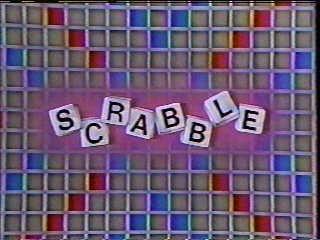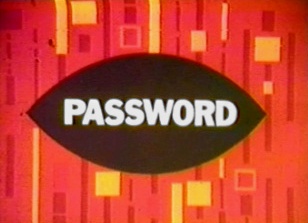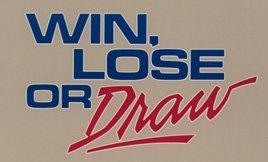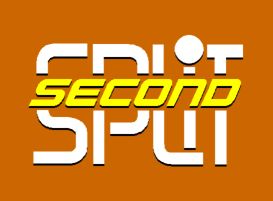
A game show is a type of radio, television or stage show where contestants regularly compete for a reward. The history of game shows dates back to the invention of television as a medium. On most game shows, contestants either have to answer questions or solve puzzles, typically to win either money or prizes. Game shows often reward players with prizes such as cash, trips and goods and services provided by the show's sponsor.

Match Game is an American television panel game show that premiered on NBC in 1962 and has been revived several times over the course of the next six decades. The game features contestants trying to match answers given by celebrity panelists to fill-in-the-blank questions. Beginning with the CBS run of the 1970's, the questions are often formed as humorous double entendres.

Card Sharks is an American television game show created by Chester Feldman for Mark Goodson-Bill Todman Productions. Based on the card game Acey Deucey, the game has two contestants compete for control of a row of oversized playing cards by answering questions posed by the host and then guessing if the next card is higher or lower in value than the previous one. The title Card Sharks is a play on the term 'card sharp', a person skilled at card games.

Pyramid is the collective name of a series of American television game shows that has aired several versions domestically and internationally. The original series, The $10,000 Pyramid, debuted on March 26, 1973, and spawned seven subsequent Pyramid series. Most later series featured a full title format matching the original series, with the title reflecting an increasing top prize. The game features two contestants, each paired with a celebrity. Contestants attempt to guess a series of words or phrases based on descriptions given to them by their teammates. The title refers to the show's pyramid-shaped gameboard, featuring six categories arranged in a triangular fashion. The various Pyramid series have won a total of nine Daytime Emmys for Outstanding Game Show, second only to Jeopardy!, which has won 13.

Name That Tune is an American television music game show. Originally created and produced by orchestra conductor Harry Salter and his wife Roberta Semple Salter, the series features contestants competing to correctly identify songs being played by an on-stage orchestra or band.

Scrabble is an American television game show that was based on the Scrabble board game. Muriel Green of Exposure Unlimited came up with the initial concept for a television game show based on the Scrabble board game. During 1983 Green convinced Selchow and Righter, who at that time owned the Scrabble board game, to license Exposure Unlimited the right to produce the television show. Exposure Unlimited hired and co-produced the show with Reg Grundy Productions and licensed the show to NBC. It ran from July 2, 1984, to March 23, 1990, and again from January 18 to June 11, 1993, with both runs airing on NBC. A total of 1,335 episodes were produced from both editions; Chuck Woolery hosted both versions of the series. Jay Stewart was the announcer for the first year and was replaced by Charlie Tuna in the summer of 1985, who announced for the remainder of the original version and the entirety of the 1993 revival.

Password is an American television game show which was created by Bob Stewart for Goodson-Todman Productions. The host was Allen Ludden, who had previously been well known as the host of the G.E. College Bowl. In the game, two teams, each composed of a celebrity player and a contestant, attempt to convey mystery words to each other using only single-word clues, in order to win cash prizes.

Win, Lose or Draw is an American television game show that aired from 1987 to 1990 in syndication and on NBC. It was taped at CBS Television City, often in Studios 31, 33, and 43 at various times. It was co-produced by Burt & Bert Productions and Kline & Friends for Disney's Buena Vista Television. It has also had two versions on The Disney Channel: Teen Win, Lose or Draw from 1989 to 1992, and a revived version known as Disney's Win, Lose or Draw which aired in 2014.

Now You See It is an American television game show created by Frank Wayne for Mark Goodson-Bill Todman Productions. The object of Now You See It is to answer general knowledge trivia questions by finding the answers hidden in a grid, similar to a word search puzzle.

Jackpot is an American and Canadian television game show produced by Bob Stewart which saw contestants attempting to solve riddles in order to win cash and prizes.

Body Language is an American game show produced by Mark Goodson Productions. The show aired on CBS from June 4, 1984, until January 3, 1986, and was hosted by Tom Kennedy. Johnny Olson announced until his death in October 1985; Gene Wood and Bob Hilton shared the announcing duties afterward, and had substituted on occasion before that.

Split Second is a game show that was created by Monty Hall and Stefan Hatos and produced by their production company, Stefan Hatos-Monty Hall Productions.

Tic-Tac-Dough is an American television game show based on the paper-and-pencil game of tic-tac-toe. Contestants answer questions in various categories to put up their respective symbol, X or O, on the board. Three versions were produced: the initial 1956–59 run on NBC, a 1978–86 run initially on CBS and then in syndication, and a syndicated run in 1990. The show was produced by Barry & Enright Productions.

Blackout is an American game show that was broadcast on CBS as part of its daytime schedule from January 4, 1988 until April 1, 1988. The program was created and produced by Jay Wolpert.
To Say the Least is an American game show that aired on NBC from October 3, 1977 to April 21, 1978. The show was produced by Heatter-Quigley Productions, hosted by Tom Kennedy and announced by Kenny Williams. This was Kennedy's third NBC show to debut in the span of one year; his first, 50 Grand Slam, was canceled after a 13-week run in December 1976 and was replaced by a daytime version of Name That Tune, which was canceled in June 1977 after 26 weeks. It initially fared well in the Nielsen ratings against CBS' The Young and the Restless and ABC's The Better Sex, but when The $20,000 Pyramid took over the noon slot on ABC in early 1978, the ratings began to suffer, and To Say the Least was cancelled in April of that year, with reruns of Sanford and Son taking its former time slot.

The Price Is Right is an American game show where contestants made successive bids on merchandise prizes with the goal of bidding closest to the actual retail price of the prize without going over. The show was a precursor to the current and best-known version of the show, which premiered in 1972 on CBS' daytime schedule. This makes The Price Is Right one of only a few game shows that have aired in some form across all three of what were then the Big Three television networks.
PDQ and Baffle are American television game shows created by Heatter-Quigley Productions. Both shows' objective was to guess a given word or phrase in the shortest amount of time with the fewest letters given as possible.
Snap Judgment is an American daytime game show hosted by Ed McMahon and announced by Johnny Olson which ran on NBC from April 3, 1967 to March 28, 1969 at 10:00 AM Eastern. The program was created and produced by Mark Goodson and Bill Todman.

Password Plus and Super Password are American TV game shows that aired separately between 1979 and 1989. Both shows were revivals of Password, which originally ran from 1961 to 1975 in various incarnations. With only subtle differences between them, both Password Plus and Super Password followed the same general gameplay as their predecessor, whereby two teams of two people each – a celebrity and a contestant – attempted to guess a mystery word using only one-word clues.

Celebrity Name Game is an American syndicated game show which premiered on September 22, 2014. Based on the board game Identity Crisis, the series was developed by Courteney Cox and David Arquette's Coquette Productions, and was originally pitched as a primetime series for CBS with Craig Ferguson as host. The series was later picked up by FremantleMedia and Debmar-Mercury as a syndicated series for 2014 with Ferguson, who left The Late Late Show on December 19, 2014, remaining as host as well as an executive producer. The series marks Coquette's first foray into game shows. The show was subsequently renewed for a second season, which premiered on September 21, 2015.

















